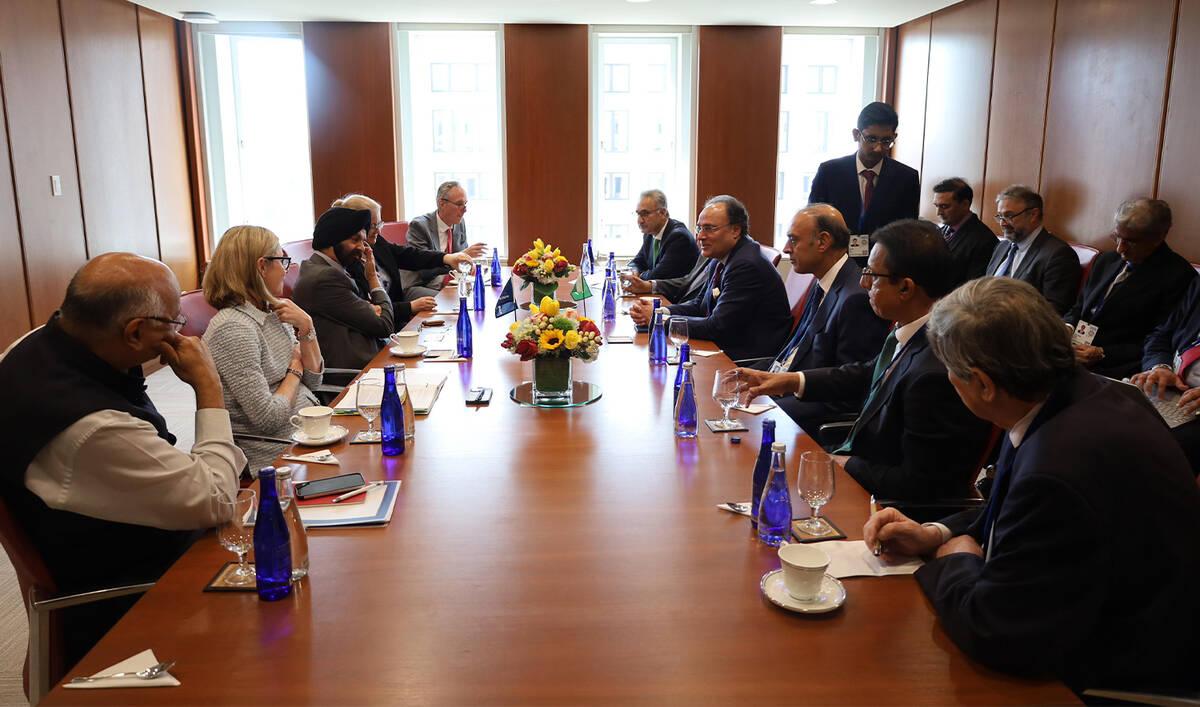RIYADH: Saudi Arabia’s Capital Market Authority is working on the introduction of special-purpose acquisition companies in the capital market to streamline the listing process, according to a senior CMA executive.
The authority is also aiming to improve the framework for direct listings, which may include offerings on the main market, and plans to expand the investor base in the parallel market to boost supply, according to Fahad bin Hamdan, assistant deputy for financing and investment at the CMA.
In his remarks at a conference organized as part of the Capital Markets Forum in Riyadh, he emphasized that SPACs would offer companies an alternative path to going public, simplifying the traditional listing process and encouraging more market participation.
“One of the key initiatives the CMA is focusing on is the introduction of SPACs in the capital market, which will simplify the stock listing process. Additionally, we are enhancing the direct listing framework, potentially including direct listings in the main market,” said Hamdan.
He continued: “We also aim to expand the investor base in Nomu to increase supply. In collaboration with Zakat, Tax, and Customs Authority, we are working to eliminate the withholding tax on all listed securities, a move that will help attract more foreign investment into the market.”
Streamlining IPO process
Hamdan also mentioned that the CMA may refine its initial public offering process to support Tadawul in making issuances and listings more accessible and appealing across various industries.
This initiative has already led to a 70 percent increase in listed stocks over the past four years, bringing the total to nearly 350 across both the main market and Nomu.
“If we look back four years, we had only five securities or stocks. Today, we have nearly 106 stocks, which reflects how much the market has grown and become more diverse, attracting investors from various sectors,” Hamdan explained.
He highlighted ongoing efforts in the debt market, noting that it has become a significant financing channel for both the public and private sectors.
The CMA has collaborated with key stakeholders, including the Saudi Central Bank, the National Debt Management Center, and Tadawul, to implement initiatives aimed at deepening the market.
Among the key actions taken, the CMA has simplified the offering documents for public debt issuances, allowed direct listing of privately placed debt instruments, and opened the debt market to international depository centers.
Foreign investor engagement has also broadened, attracting a diverse range of participants. To further encourage secondary market activity, the CMA eliminated commission fees on bond transactions, lowering costs and attracting more investors and issuers.
Debt issuances
In addition, the authority is working with ZATCA to introduce sukuk structures with zero tax burdens, removing a significant obstacle for local investors in a low-interest environment.
These reforms have had a notable impact, with the number of debt issuances doubling over the past three years, rising from 30 to 60.
According to Hamdan, the investor base in the debt market has expanded from 500 to over 50,000 participants. The number of transactions in the sukuk and debt market also surged by 893 percent from 2021 to 2023, reflecting the broader engagement from both issuers and investors.
“These amendments also helped reduce the concentration of banks’ ownership of debt instruments. Previously, banks held around 60 percent of total debt,” the official said.
He added: “Now, that figure has dropped to below 45 percent as investment companies, mutual funds, and retail investors have increased their participation.”
The CMA remains dedicated to further deepening the market in collaboration with its partners. In recent years, it has worked with Tadawul to introduce a market-making framework, initially applied to select stocks, aimed at enhancing liquidity and narrowing bid-ask spreads.
This framework is continually evolving to cover a broader range of asset classes, ultimately improving overall market efficiency.
Exchange-traded funds
The Saudi Exchange-Traded Funds market has also experienced substantial growth. Since its launch in 2010 with three ETFs focused on local equities, the sector has expanded to include sukuk ETFs for fixed-income exposure and gold ETFs.
In 2022, there were eight ETFs with a total of SR1.5 billion in assets under management. By 2023, this number had increased to 11 ETFs, with AUM rising to SR6.5 billion.
“Yet, we believe the ETF sector still has room for development and can play a bigger role in market transformation,” Hamdan said.
He continued: “This year, the CMA will conduct a full analysis of the ETF ecosystem to explore new strategies, such as active ETFs, and improve the efficiency of basket creation and liquidity enhancement mechanisms.”
The CMA is also focused on enhancing data dissemination and introducing measures such as short selling and securities lending for ETFs, which will make the market more attractive to both local and international investors.
Hamdan highlighted the growing interest from foreign investors, noting that several ETFs listed in other markets are now investing in Saudi equities.
Foreign investment
The CMA has made significant strides in opening the Kingdom’s market to foreign investors, a process that began two decades ago with the introduction of direct access for foreign residents. In 2015, the Qualified Foreign Investor regime was launched, marking a key milestone in the liberalization of Saudi markets. Since then, ongoing regulatory changes have further eased foreign access and reduced restrictions.
“These efforts have led to a fivefold increase in the number of QFIs over the past four years. By the end of 2023, QFI ownership in the Saudi market had surged to SR422 billion, a remarkable 2,000 percent increase over the past four years,” Hamdan said.
With these continued regulatory advancements, Saudi Arabia’s capital market is set for further growth, diversification, and deeper global integration, all in line with the Kingdom’s Vision 2030 objectives.



















